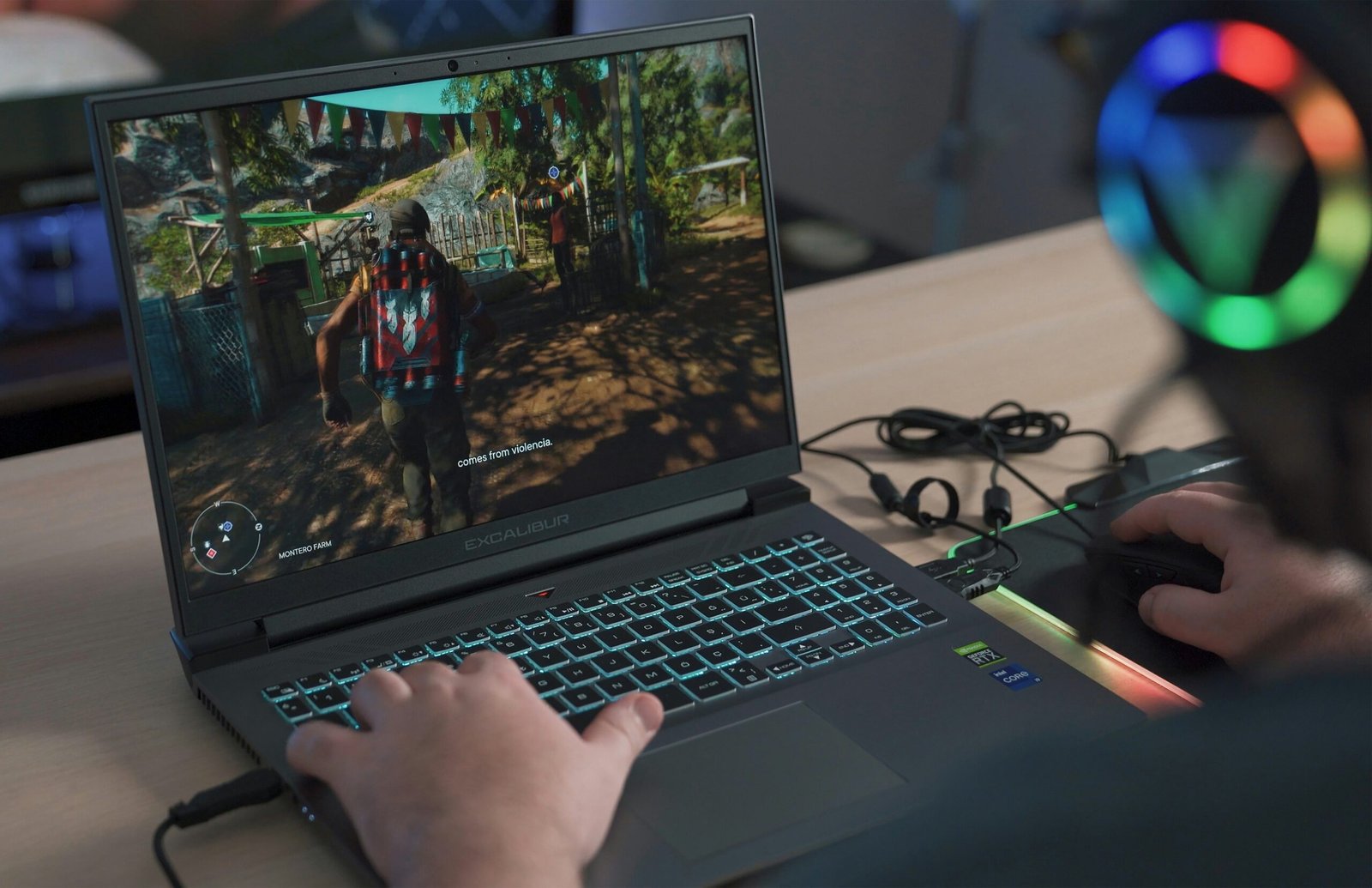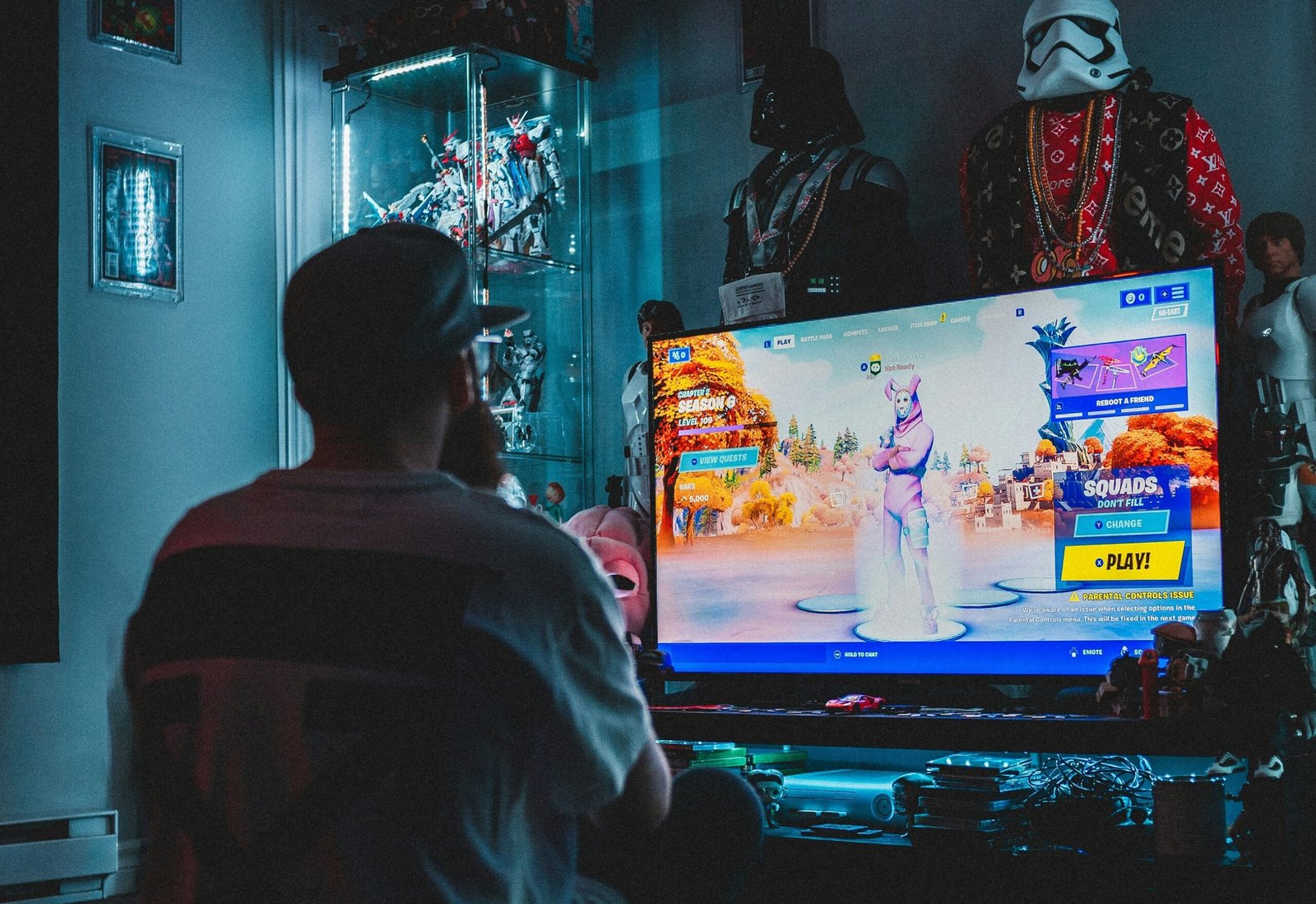The other day I found myself downloading, for the hundred time, another game that I have already played countless of times. I’ve done that in the past, many times, again and again, and it started keeping me at night. Why do we keep playing the same games over and over again?
You could argue that the reason behind this is the same that goes for whoever keeps on watching the same movies and TV shows, but the million-dollar question is; What’s the actual reason?
What does science say about this topic?
Let’s start with the boring stuff, shall we?
First and foremost, we’re putting our theories aside and we’re checking what the actual scientists are saying, looking at any research and studies that have been completed. Although I found many of them, I don’t take them very seriously, especially those that started and completed during the pandemic of COVID-19 – because let’s face it; We all played more than we should at the time.
But even so, I can’t bypass some of the sources that I found, especially the one considering a study made by Oxford University in 2020, that concluded that “time spent playing video games can be good for your well-being”. But why? Well, during the UK’s second national lockdown, the Oxford University found that playing video games positively impacts well-being.
Unlike previous research, this study used actual playtime data from games like Plants vs Zombies: Battle for Neighborville and Animal Crossing: New Horizons. Although they could have gone with better options, I guess that wasn’t a priority for the study, so yeah, continue.
But wait! There’s another study. The article from Frontiers in Psychology explores the relationship between video gaming and psychological functioning. It involved 2,734 participants and found a medium-sized negative correlation between problematic gaming and psychological health, including symptoms, affectivity, coping, and self-esteem.
The study also highlighted that reasons for playing and preferred game genres differentially impact psychological functioning, with distraction-motivated players and action game players showing notable effects.
What was the conclusion? Well, excessive video gaming can negatively affect psychological health, but the impact varies based on the player’s motivations and preferred game genres. It suggests that understanding these factors can help in developing better guidelines and interventions for healthier gaming habits.
It’s a different experience for each gamer
It’s all about the person and the game of choice.

By reading and looking closely at both studies, we can quickly take a few key points with us, including that, for many people, games can seriously impact their well-being, whether if that’s positive or not. We can also see how enjoyment, competence, and social connection during gameplay are also crucial factors for each person, and they can differently impact their psychology.
But how are those things related to us playing the same games over and over again?
It’s crucial to note here that the article from Frontiers of Psychology tells us something very important: Games can negatively affect our psychological health. It’s not all black and white, and it’s not all about having fun. Sometimes, games can actually become pretty frustrating, and they can change a person from being happy to lose their mind.
What’s the point of this? Well, talking with a few gamers I figured out that some of them didn’t want to play a new game, and instead they wanted to relax, have some fun, and enjoy playing. Those are the same persons who also keep a strong routine, meaning that playing the same games over and over again also becomes part of their daily routine, making it almost avoidable. It comes at a time when we simply start our PCs or gaming consoles, launch our favorite game, and mechanically play it without even thinking about it (or the steps).
Playing the same games over and over again for some people is the preferred way of relaxing and having fun, without having to learn anything new – apart from becoming better and more competitive each time they play it. For others, the excitement of playing and discovering something new is their own way of fun.
Excessive gaming with familiar games
Maybe we play the same games over and over again to avoid stress?

Have you ever thought that, in order to protect yourself, you mechanically choose to play the same games over and over again? What if I told you that, if you’re a person that can easily get stressed, playing new games excessively can actually increase your stress? I mean, I know some close people who have this issue, and I think you may know too.
But here’s what’s interesting: Based on Harvard Health, excessive gaming can lead to repetitive stress injuries like carpal tunnel syndrome, tendinitis, and tennis elbow. It can also contribute to obesity, sleep deprivation, insomnia, depression, aggression, and anxiety.
Reading this, I can only say that there are many people who may be fighting with depression, aggression, anxiety, and sleep deprivation just because they spend most of their time playing games.
When it comes to personal experiences, I can relate a bit. When I was younger, playing up to 12 hours per day used to be lots of fun and a great way of getting my mind out of life’s problems. Nowadays, playing for over two hours can lead to stress, as I keep finding myself thinking that instead of losing my time playing, I could have done something far more productive and creative, maybe start a project, or even work on a new book.
I’ve tried to relate myself to those studies, and while I was thinking of examples, I couldn’t stop but think that for the last few days, I kept on playing Throne and Liberty. For a few days, I was more frustrated and angry than I typically am, while when I was playing Aion, I had more fun and I felt more relaxed through the whole time. I think that was because I’ve been playing Aion for as long as I can remember, while Throne and Liberty was something new that pretty much ended up being another title that I eventually uninstalled.
Gaming can impact each person differently. For many, it’s a great way of entertainment and fun, while for others, it may be the reason behind their stress, anxiety, and so many other health-related issues. For the people who are part of the second group, choosing already familiar games may be the ultimate solution to avoiding ruining their gameplay experience and relaxation.
The difference between Multiplayer and Singleplayer games
Multiplayer games often encourage socializing and teamwork, while singleplayer games can often provide a relaxing escape.

There are two types of gamers: Those who prefer playing multiplayer games and getting very competitive with others, and those lonely wolves who focus on singleplayer games, completing the campaign stories, doing all the side quests, and even replaying the same story multiple times. But what are the biggest differences between those two types?
Multiplayer games
When it comes to multiplayer games, they can have lots of positive impacts, including the encouragement of social interaction, and teamwork, fostering friendships, and giving players opportunities to meet other people with the same interests.
Most multiplayer games also require players to think more strategically, problem-solving, and quick decision-making, which can enhance some cognitive abilities. Last but not least, they can also make a gamer feel part of a gaming community can provide a sense of belonging and support, especially in online forums and guilds.
But multiplayer games can also have negative impacts, especially for people who can’t stand toxicity, which is one of the biggest problems of the worldwide gaming community. Multiplayer games expose players to toxic behavior, bullying, harassment, and negative interactions overall, which can highly impact someone’s psychology. The competitive nature of multiplayer games can lead to excessive gaming, impacting daily responsibilities and time management.
By the way, all of those may end up resulting in becoming overly dependent on social validation and peer approval within the gaming community – which, as you can understand, it’s not good.
Singleplayer games
Although we’re still talking about gaming, singleplayer games are a whole different story, especially for people who want to quietly enjoy the storytelling of each game without rushing through it. It’s being said that singleplayer games provide something unique: Stress relief.
That’s because they often feature rich narratives and creative worlds that do not include thousands of players, big competitiveness, and the feeling of “I must do this for the legion or the teammates”. Singleplayer games can also improve focus and concentration, especially for games that require from players to solve puzzles or mysteries and complete challenges.
With all that in mind, playing singleplayer games means that you can chill and play at your own pace, and with a peace of mind that you can save the game, close it, and rejoin it whenever you feel like it.
But as with multiplayer games, singleplayer games also come with their own negative impacts. For example, singleplayer games can lead to social isolation, especially when a player spends a lot of hours daily completely alone. Similar to multiplayer games, singleplayer games can also be addictive, leading to neglect of other activities and responsibilities. Long gaming sessions can also impact physical health, leading to issues like eye strain, poor posture, and lack of physical activity.
Understanding the reason for playing the same games over and over again
Because if you don’t ask yourself, who will?

At the end of the day, each person is different, has their own problems, and they’ve built their own personal preferences and mindset. Some people may find that gaming actually helps them a lot, especially if they’re at a difficult place in their lives. For other people, gaming may bring more problems than they already have, especially for those who have gotten addicted to it.
If you have a lot of stress, or anxiety, or facing any other similar issues, stopping those long gaming sessions may end up resulting in a more stress-free life. If you find yourself getting angry or frustrated too often during gameplay, this can also severely impact your life outside the gaming sessions, and quickly get out of hand. If that’s the case, speaking with an expert is highly recommended.
If playing games really makes you happier and you feel relaxed, then it doesn’t really matter which games you play, whether that’s multiplayer or singleplayer modes, as long as it’s something that makes you feel better and doesn’t put you out of your schedule.
With that being said, I’ve come to the simplest – and yet most realistic – result:
Both multiplayer and singleplayer games have the potential to offer positive experiences and challenges, depending on how they are played and managed. Balance and moderation are key to enjoying the benefits while minimizing any negative impacts.
If you think you can’t get relaxed while playing, think about lowering your gameplay hours, changing your games with a few less intense titles, and even replacing them with something more creative. If you don’t have those problems, well, keep doing what makes you happier, even if that’s playing the same games over and over again, for years to come.
For some people, playing the same games is also a type of comfort. Yes, the comfort zone doesn’t just exist in our day-to-day lives, but in games too. Many may choose the replay the same game for the same reason they’ve stuck to the same job for years, they’ve never exercised in their whole lives, and anything related to avoiding getting out of their comfort zones.
Just thinking about it can put you in a weird spot. Do you play games because they actually make you feel better, or are you trying to avoid your problems and get lost in a digital world that seems more peaceful than the one you are already part of?
So, why do you keep playing the same games over and over again? Is it because of your comfort zone? Maybe because you feel more competitive or relaxed? And do you prefer multiplayer or singleplayer games and why? Let me know your thoughts, personal experiences, and opinions about the topic in the comments section down below.











